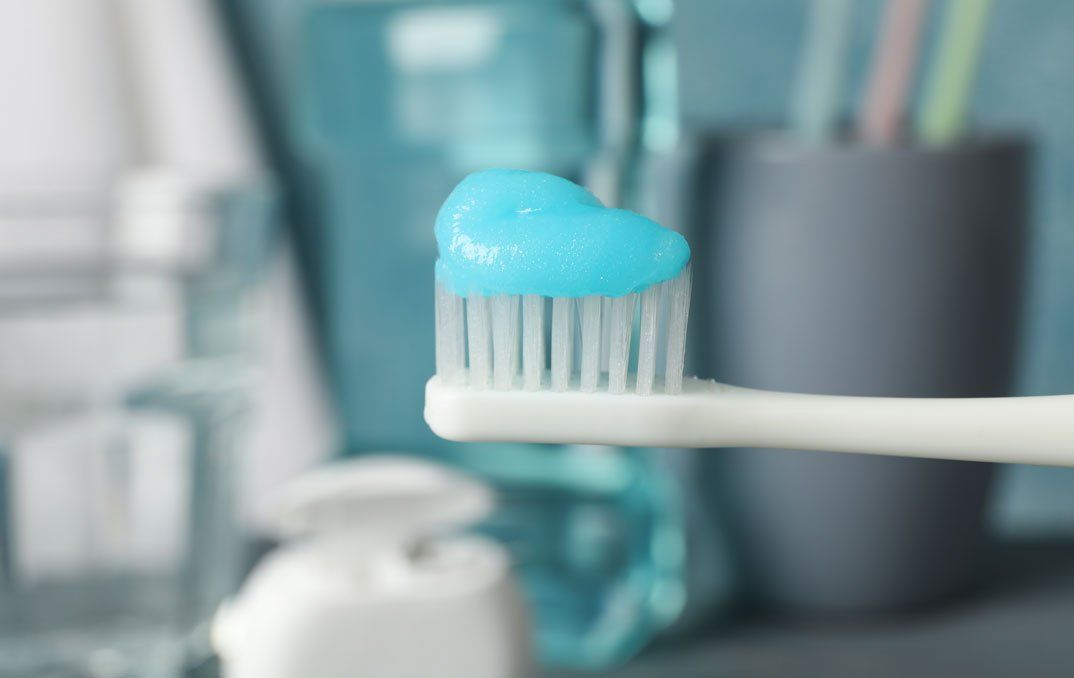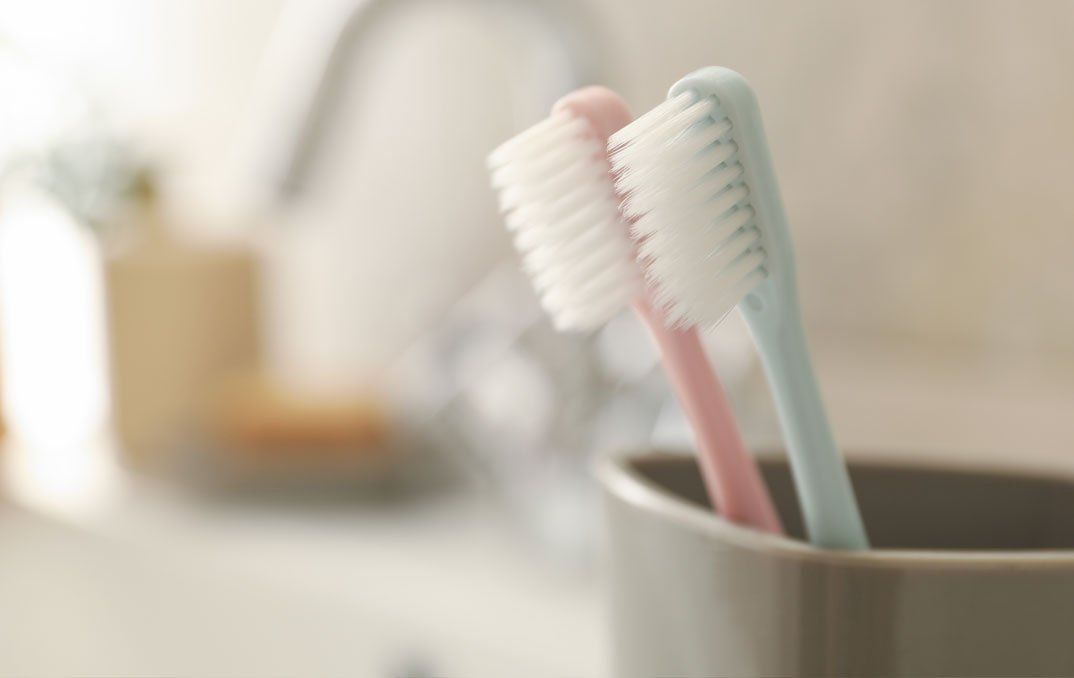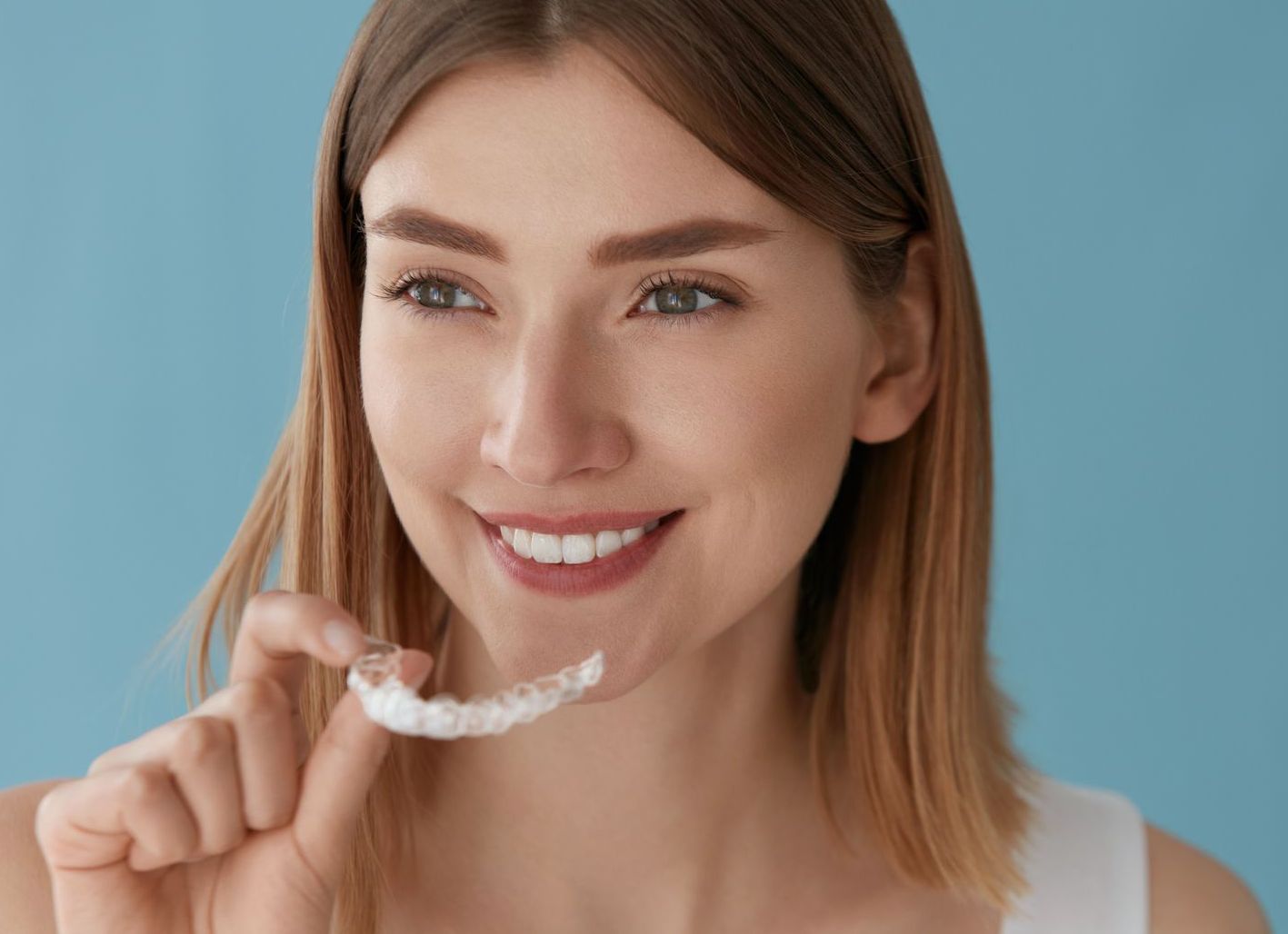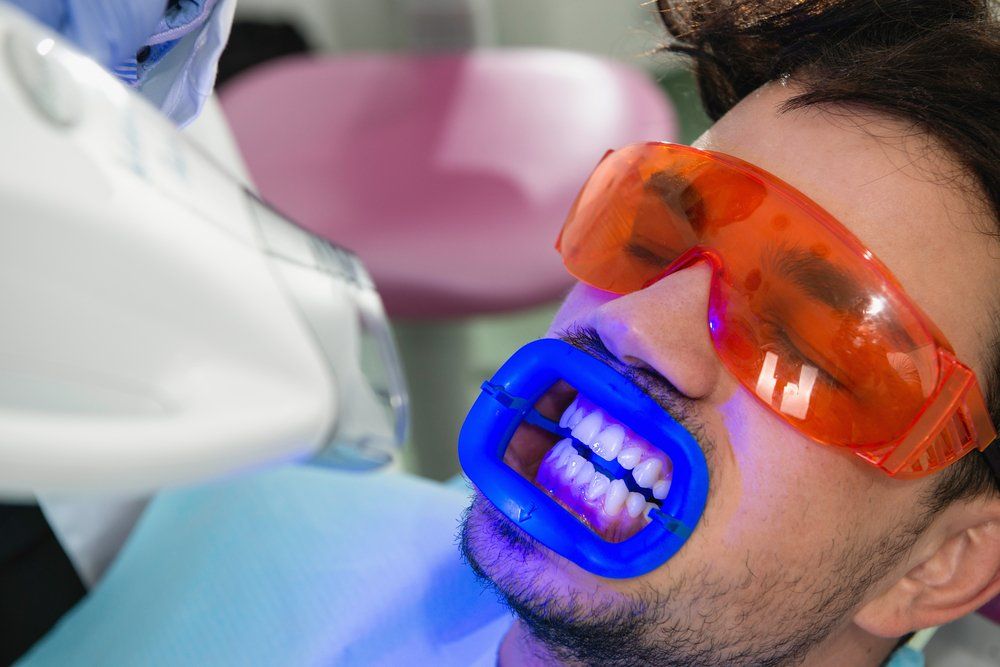Dental News

Value your pearly whites? Enjoy the appearance of your smile? Then, it is in your best interest to stop drinking soda. Soda is a delicious treat. However, many people drink soda consistently. Most individuals don’t just stop with one! Some people may drink soda throughout the day to alleviate stress or to stay more alert. Drinking soda in this manner is highly likely to damage your teeth. Dental hygiene involves much more than just desiring a pearly white smile. Dental hygiene also involves the food you eat which can, in turn, affect your overall health. For example, poor dental hygiene is highly correlated with heart disease, obesity, and diabetes. So, why does soda taste so good? For starters, the sugar content in soda activates the reward center of the brain. This can explain why we reach for other sugary substances, like donuts instead of broccoli, as a treat. The carbonation in soda is also appealing to many people. The carbonation provides a sense of refreshment you can’t receive from uncarbonated drinks. However, you may want to learn more about why drinking is so bad for your teeth and reconsider your soda drinking habit! Protecting Your Pearly Whites Habits can be difficult to break, but following the same destructive routine can be even more painful. This is the case when we drink soda on a regular basis. We may feel like drinking soda is an important part of our routine, but it’s certainly damaging our health in the long run. For soda lovers, this news can be disheartening. Of course, most of us realize that water or tea is better for our overall health. However, we may not consider the effects soda can have on our dental hygiene. Sorry, diet soda drinkers! You’re at risk as well. Diet soda may appear like the better choice for your waistline, but it still adversely affects your dental hygiene. Explore the following reasons why you should stop drinking soda and learn how to drop soda for good: Reasons to Stop Drinking Soda Regular soda contains two acidic producing substances. The first is sugar and the second is carbonation. Sugar in your mouth promotes the growth of bacteria. Bacteria feed off this sugar and can produce acid, which affects your teeth’s enamel. As this enamel wears down, your teeth become more susceptible to tooth decay, cavities, and other dental problems. The carbonation in soda is also acidic. So, when you drink soda your teeth are vulnerable to two separate acid attacks. These so called “acid attacks” can last for up to 20 minutes after you drink a soda. Although diet sodas don’t contain regular sugar, they still contain acid from the carbonation. With this in mind, it is smart to consider eliminating diet soda consumption to prevent tooth enamel erosion. Tips for Curbing Your Soda Intake There are many healthy ways you can reduce or eliminate your soda drinking. For starters, try reducing your intake of soda by increasing the amount of water you drink. It is important to set a daily water consumption goal and stick to it. You may notice that by setting a water intake goal, your consumption of soda naturally begins to slow down. Another good idea is trying to only drink soda at mealtimes. This is much healthier for your teeth because the food helps reduce the effects of the acid by maintaining your mouth’s pH levels. It may seem daunting to eliminate the addictive soda drinking habit immediately. It is a good idea to start with small goals and then add in more aggressive goals when you’re ready. For example, a soda drinker may start with a goal of only consuming two sodas per day. When you’ve attained this goal on a consistent basis, then consider changing your goal to one soda per day. Eventually, you can eliminate your soda drinking habit completely. There are also methods to prevent tooth damage while continuing to drink soda. One important way is to rinse your mouth out with water after drinking a soda. Another good idea is drinking soda through a straw to reduce the amount of contact the soda has with your teeth. It’s important to not brush your teeth for at least 30-60 minutes after drinking a soda, as this can damage the teeth even further when they’re in a vulnerable state after an acid attack. Choosing Healthier Options to Stop Drinking Soda If you’re convinced that you should stop drinking soda, then you may be ready to take action. As we all know, however, replacing an addictive habit can be a challenging task. To start, you’ll need to cultivate an encouraging support system. It is a good idea to explain to your friends and family that you are trying to stop drinking soda. Ask them to support you in any way they can and to encourage you to follow through with your commitment. It is important to ask them not to offer you soda, so there are less temptations. You can also consider hiring a health coach to help hold you accountable for attaining your goal. A health coach can also offer individualized suggestions for replacing your soda drinking habit. It is wise to schedule an appointment with your dentist, so you have an idea of the status of your oral health. You may want to ask your dentist how any dental issues from drinking soda can be repaired. Your dental provider might suggest a new toothpaste or dental hygiene routine to make sure your oral health is back on track. Your dentist will also be able to clean your teeth and repair any damage. Need help improving your dental health? Contact us today to learn more about oral hygiene and to schedule a dental appointment at our West Covina dental office or Chino dental office.

Essential on statistics, the United States is a gum-chewing nation. A startling 173.41 million people in the US chew gum. Chewing gum is valuable to your body and mind. It can also help keep your teeth clean! Chewing gum is an enjoyable pastime for many as you end up drifting into a world of endless thought. With the emergence of sugarless gum, traditional concerns about the impact of this activity on your oral health have been alleviated. You can gain significant oral benefits by chewing sugarless gum. The Oral Benefits of Chewing Gum Many people use gum to freshen their breath. However, did you know that chewing gum helps clean your teeth? The process of how gum cleans your teeth is an interesting one. 1. Chewing Can Increase Saliva Flow Have you ever experienced a dry mouth for an extended period? You may struggle to speak, eat, or even swallow. You may also experience bad breath due to the extent of dryness. A dry mouth may result from several issues, such as being under medication or struggling with infections (like flu and colds). It may surprise many that doctors recommend chewing gum as a possible solution to this problem. Chewing can increase the amount of saliva flowing in your mouth. There is a compression of the salivary glands when chewing, which helps increase saliva production. The next time you struggle with a dry mouth, chewing may be the solution to your predicament. The saliva will help ensure your mouth remains moist and comfortable. 2. Chewing Can Prevent the Decay of Teeth Dealing with a cavity is one of the minor enjoyable situations you may encounter. The pain can be extreme, and the filling or extraction process causes obvious discomfort. The decay may be a result of bacteria that align around the mouth. Chewing gum that cleans your teeth is a great way to deal with this concern. When you chew, your mouth produces a substantial amount of saliva. The saliva contains a balance of calcium and other nutrients, such as fluoride. These nutrients can lead to significant benefits, including eliminating toxic elements on the lining of the teeth. This idea of chewing gum ultimately assists in dealing with tooth decay. Considering the high levels of fluoride found in saliva, chewing gum also ensures that your teeth remain strong. This means that if your favorite pastime is chewing gum, you may have fewer concerns associated with decaying teeth. 3. Gum That Cleans Teeth Can Act as Whitener Research indicates that the most likely thing you may notice in a person is their smile. Chewing gum can be beneficial if you are looking to whiten your teeth. While this is not a substitution for a regular brushing routine, it can be helpful. If you are a smoker or drink coffee often, you may find chewing gum especially valuable. Chewing gum stimulates salivary flow, contributing to the process of teeth whitening. The gums introduce a coat over your teeth, helping to prevent the formation of stains in your mouth. 4. Helps with Bad Breath The unfortunate thing about bad breath is that it tends to affect everyone else, yet you often have no idea of the odor within your mouth. Chewing gum can help you overcome this embarrassing concern. Most people have had a one-on-one conversation with a person with unpleasant breath. The experience is not enjoyable, especially if that person is close. The reality is that bad breath can be irritating. However, the good news is that chewing gum can be extremely helpful when dealing with the embarrassment that follows this condition. If you enjoy chewing gum, you may be doing the people around you a big favor without even knowing it! 5. Chewing Gum Improves Oral Health Have you ever had an infection or wound inside your mouth? Well, it may cause severe irritation to the gums or your tongue. The saliva in your mouth can keep the process of self-cleaning ongoing. This means that the cell-derived tissues in the saliva can conduct a recurrent treatment process for the wounds. This ultimately leads to self-healing. Chewing gum releases enough saliva to ensure a recurrent analgesic opiorphin, assisting in healing such wounds. Is chewing gum good for your teeth? — it’s affirmative. You may be able to witness all the positive effects of this habit on your teeth. The wound treating ability in chewing gum means that this activity has specific positive medicinal beneficial implications. The combination of both analgesic opiorphin, fluoride, and calcium in your saliva is valuable in boosting your oral health. Chewing Gum That Cleans Teeth Can Improve Your Oral Health If you chew gum that cleanses your teeth, you can improve your oral health and avoid recurrent visits to the dentist. Chewing gum is a fun pastime and a source of numerous health benefits for you. People looking for an enjoyable way to clean or protect their teeth from tooth decay and cavities should consider chewing sugarless gum more often. Chewing gum will also assist in dealing with bad breath or a dry mouth—the ability to secrete saliva when you chew guarantees these critical oral health benefits. Contact us with any questions on improving your oral health or to schedule a consultation!

Do you feel insecure about your smile because of missing teeth? Are you constantly in pain due to crooked, cracked, or infected teeth? Perhaps you're even frustrated with cosmetic dental work completed in the past, failing to see your desired results. Now is the time to consider dental implants! They can help improve the appearance of your smile and are an effective solution to a wide variety of cosmetic dental issues. Curious to learn more about dental implants and how they work? Discover some of the top signs that dental implants may be a good fit for you. A smile solution is just around the corner. What Are Dental Implants? First, it's essential to understand exactly what dental implants are and different from other cosmetic dental treatments. Dental implants are artificial teeth that help fill in the gaps within your smile. The so-called "roots" of the implants are placed directly into your jaw's bone tissue, where they naturally bond with the bone. The roots are somewhat similar in appearance to screws and will ensure that the implant has a solid, stable base. After healing, an abutment crown is placed on top of the implant. Dental implant abutments provide additional support for the artificial teeth and work to secure your customized crowns in place. Your dentist will create a dental crown that looks natural and matches your natural teeth' shape, size, and shades. Placing dental implants usually involves several visits to the dentist, spread over anywhere from three to nine months. Common Signs That You Might Need Dental Implants 1. You Have Missing Teeth About 178 million Americans are missing at least one tooth. We understand that feeling confident when you smile can be a struggle if you're among them. You may hide your mouth behind your hands or have difficulty looking people in the eye. In some cases, the missing tooth may even cause you to "whistle" when you speak. Dental implants help by filling in the gaps caused by missing teeth. 2. It's Hard to Chew You may also decide to have a dental implant abutment procedure because you have difficulty chewing due to damaged teeth. In this scenario, your healthy teeth are forced to "pick up the slack" for your broken teeth, causing them to wear down quickly. You may even experience extreme pain from exposed nerve endings when you chew. By replacing your missing teeth, you take the pressure off of your other teeth. This also helps avoid further issues, like a misaligned, crooked smile. 3. You're Sensitive to Temperatures Many people experience some tooth sensitivity when eating or drinking. Individuals experiencing severe oral health issues and damaged teeth are more likely to deal with extreme pain and sensitivity to hot or cold temperatures. Even brushing your teeth can cause irritation and pain in the teeth and gums, drinking water, eating ice cream, or sipping soup. Dental implants enable you to return to enjoying the foods you love without discomfort. 4. Your Tooth is Broken or Cracked Cracked, chipped, and broken teeth aren't just unattractive. Depending on how severe the damage is, these teeth can also be difficult to repair with standard cosmetic dental procedures. Even if you are fortunate to repair a chipped tooth, the chances are high that you'll have to deal with the issue again in the future. In some cases, the best solution is to remove the broken tooth altogether. Then, your dental provider will place a dental implant. The implants are incredibly sturdy and durable, so you can thoroughly enjoy all types of food and activities. 5. You Have an Infected Tooth One of the most important reasons to consider dental implants isn't cosmetic. Instead, it's about taking every step possible to protect your oral health while also strengthening your overall health and well-being. Statistics show that untreated dental infections and diseases can increase your risk for strokes, heart attacks, and other serious medical issues. It's simply not something you should ignore. As with cracked/chipped teeth, sometimes the extraction of a severely infected tooth is the best option. You'll then receive a dental implant, which will leave you both healthy and free from the pain of a dental infection. 6. Your Dentures Aren't Working While dentures may have appeared to be an effective solution in the past, that's no longer the case. Dentures require constant maintenance and often slip, causing embarrassment and discomfort. Sometimes, dentures that don't fit properly can even irritate your gums. Dental implants offer a permanent solution that won't move around and slip. This means you can avoid sores, pain, and potential infection. Are You Ready for Dental Implants? Whether you're tired of your dentures slipping down or if you're in constant pain due to sensitive or damaged teeth, it is clear that dental implants are an effective solution for missing teeth. You deserve the best possible care and attention — and we want to make sure that's exactly what you receive. We offer a wide variety of dental treatments and solutions. We encourage you to contact our West Covina and Chino denta l practice with questions or to schedule an appointment, and we can make sure you maintain a healthy, happy mouth!

We all know how essential fluoride treatments are for children. However, did you know that fluoride usage for adults is just as important? It’s never too late to start practicing a healthy oral hygiene routine for your teeth. Even adults should use fluoride to experience the amazing positive effects on their teeth. There are five clear benefits of fluoride treatments that all ages can appreciate. 1. Protects Your Enamel One of the most well-known benefits of fluoride treatments is their ability to protect a tooth’s enamel. Drinking liquids that contain high amounts of acid can cause the enamel on your teeth to break down. When the enamel deteriorates, your teeth become more sensitive to everyday activities such as drinking warm, hot, or cold liquids. Drinks containing high amounts of the acid include lemon juice or lemonade, tomato juice, grape juice, orange juice, apple juice, and many other fruit juices. Unfortunately, susceptible teeth can cause an unpleasant sensation at any moment. Brushing your teeth with fluoride toothpaste and receiving fluoride treatments at the dental office reduces the amount of sensitivity your teeth experience. Fluoride helps protect the teeth and enamel against these acids and the bacteria that cause them. Specifically, fluoride protects the enamel from being broken down, reducing teeth sensitivity. 2. Puts Minerals Back In Your Teeth Acid does more damage to your teeth than simply breaking down the enamel. It also breaks down the structure of your teeth by destroying the minerals that make up your teeth. Minerals, like calcium and phosphorous, are vital to the health of your teeth. When acid breaks down the enamel, it causes your teeth to become weak and damaged. The loss of calcium and phosphorous in your teeth can have dire consequences. Fluoride reverses the damage by adding those vital minerals back into your teeth. This process, known as remineralization, ultimately helps rebuild damaged teeth. Remineralization is essential to maintaining healthy, strong teeth! 3. Helps Prevent Cavities and Tooth Decay Bacteria is present in everyone’s mouth. When sugars and starches are consumed, the bacteria produce an acid that breaks down the enamel. This process is extremely harmful to your teeth, and when it’s not combatted with fluoride treatments, the acid begins to decay your teeth. Fluoride is always the best treatment when battling tooth decay or cavities. You’re much less likely to experience cavities or tooth decay when receiving fluoride treatments and using fluoride toothpaste at home. It’s important to remember that tooth decay and cavities affect children, but they are common challenges for adults as well. With this in mind, you should prioritize getting fluoride treatments routinely as part of prevention. Fluoride can also be found in community water systems. Drinking this water can be beneficial for all members of the family. 4. Saves You Money Down the Road It’s no secret that dental procedures can be costly. The best way to save money, in the long run, is to stay up to date with your fluoride treatment. There are topical and systemic fluorides. Topical fluorides are applied directly onto your teeth’ enamel. This can be completed with fluoride toothpaste, mouthwash, and treatments offered within the dental office. Many dentists use a fluoride treatment on the teeth during routine cleaning. Systemic fluorides are fluorides that are swallowed. This type of treatment can be completed by drinking fluoride water in communities with a fluoride water system. Systemic fluorides are also provided in the form of dietary fluoride supplements. Both fluoride treatments are the best way to ensure healthy teeth and prevent expensive dental procedures. 5. Provides A Natural Preventative A final significant benefit of fluoride is that it serves as a natural preventative for your teeth. Fluoride is a naturally occurring substance found in oceans and groundwater. By using water fluoridation, we’re able to adjust the levels of fluoride in our drinking water to the recommended level for preventing tooth decay and cavities. It’s a natural and effective way to prevent possible damage to our teeth. The next time you visit the dentist, it’s wise to ask about receiving fluoride treatments as a means of prevention for your teeth. Why You Need Fluoride Treatments for Your Adult Teeth For all of the reasons children require fluoride treatments, adults need them. Even when our adult teeth are healthy and robust, it’s still essential to have routine fluoride treatments. Over time, different liquids and solids that we consume build an acid that ultimately breaks down our teeth, starting with the enamel. Once the acid penetrates the enamel, it can begin to break down crucial minerals needed in our teeth. Fluoride is the best way to ensure strong, healthy teeth, and it’s a great way to rebuild the enamel or minerals that may have already been lost. If you or your family members haven’t used fluoride on your teeth yet, then it’s time to start considering it. For more ways to keep a healthy and bright smile, browse through our website or contact our office to set up a consultation!

Most people are surprised to learn that the average toothbrush contains over 700 bacteria. Fungi, viruses, and tiny microorganisms sit on the bristles of toothbrushes worldwide, establishing a foundation for diseases to form. If the thought of bacteria dwelling on the toothbrush you routinely place in your mouth doesn’t pique your curiosity about changing your oral hygiene habits, think about the poor physical condition of your toothbrush. Over time, the bristles on your brush become fanned out and spread apart. Keeping the threat of oral bacteria and the physical appearance of your toothbrush in mind, the critical question is how often should you change your toothbrush? Where Are the Bacteria on Your Toothbrush Coming From? The number one source of bacteria on your toothbrush is in your mouth. You routinely use your brush to clean the plaque, food, and odor-causing germs from your mouth. Because most people don’t use soap or bleach on their brush after using it (which we don’t recommend), there will undoubtedly be some bacteria present on your toothbrush. It’s also important to consider where you store your toothbrush. Many people frequently keep their toothbrushes close to the sink or even the toilet. Brushes placed too close to either of these bathroom fixtures are at risk of attracting extra unwanted microorganisms. Lastly, it is essential to remember that how you store your toothbrush matters. Placing your brush in unwashed containers and holders can also facilitate the growth of bacteria. When Should You Change Your Toothbrush? Despite the presence of bacteria on toothbrushes, the solution here is not to brush your teeth less! That would undoubtedly lead to a variety of other harmful dental conditions. The answer is to replace your toothbrush regularly. Between the American Dental Association (ADA) and many licensed dental professionals, it is recommended you change your toothbrush every three to four months. The bristles usually become severely worn within this time frame and are much less effective. It should be noted that most dental professionals have a general rule that trumps this timeline. If you have recently been sick with an infection or virus, dental providers recommend changing your toothbrush right away. Children may require a toothbrush replacement sooner than adults. Kids usually brush their teeth more rigorously than their grown counterparts, so the wear and tear on their brushes may be more evident before the three-month mark. If you happen to be wondering if it matters whether a toothbrush is manual or electric, the answer is no. Bristles are bristles, and it is strongly suggested you change your brush (or toothbrush head) every three to four months. Caring for Your Toothbrush While the average person doesn’t feel a toothbrush requires special care and attention, dental professionals are quick to point out that it is essential to follow some important steps: Rinse For starters, after you use your toothbrush, it’s essential you rinse it off thoroughly with tap water. Rinsing helps wash away any remaining toothpaste, food, and saliva that may still be present on your brush. Store in a Dry Place After you’ve finished rinsing your toothbrush with tap water, it’s imperative to store it in a vertical position to air dry the brush. The keyword here is “air dry.” It’s essential to make sure your toothbrush is completely dry every time you use it. If you’re accustomed to placing your toothbrush in a closed container after use, it’s time you break that habit. This helps prevent the bacteria buildup present in a storage container like that. It’s best not to even keep your toothbrush in a closed container for traveling purposes. Instead, think about purchasing disposable brushes when traveling away from home. Be Careful Where You Keep It As previously mentioned, many bacteria access your toothbrush based on its proximity to the toilet or sink. Splashing water from either one of those sources can result in unwanted germs transferring onto your brush. Therefore, you should find an appropriate place to store your brush to remain away from this type of water. Additionally, it’s best not to store your toothbrush in a place where it’s consistently touching the brushes of your family members. You certainly don’t want other bacteria from your family members adding to your own. It would be best if you never forgot that your toothbrush is yours alone. It’s never a brilliant idea to share a toothbrush with another person. Keep a Spare or Two As you surf the internet or make trips to the store, it’s wise to purchase some extra toothbrushes or toothbrush heads. It’s essential to have these different brushes around the house during those times when you are faced with unexpected challenges (I.e., you get sick, you drop your brush in the toilet, or your young kids get a hold of your brush). From now on It’s been said that when people know better, they tend to do better. Now that you know you should be changing your toothbrush every three to four months, you shouldn’t rely on your next dental appointment to make an upgrade. Since you’re aware of the importance of keeping your brush in a dry and secure place, you’ll be careful not to lay your brush down an inch away from the bathroom sink.



